Hot on the heels of three out of three Golden Globe wins for Lee Sung Jin’s brilliant tragicomedy BEEF, we speak to Korean-American actor and artist Joseph Lee, who plays George Nakai, the new-age ‘perfect’ husband to Globe winner Ali Wong’s lead, Amy Lau.
If you haven’t yet watched BEEF, and you enjoy a dark high-octane drama, then give yourself a treat. Inspired by a real event in creator Lee’s life, the catalyst to the story is a road rage incident between two strangers — a failing contractor and an unfulfilled entrepreneur. It’s the tale of a singular event that escalates into a prolonged and tumultuous feud. Masterfully executed, BEEF is a culturally-precise study of anger, responsibility, repressed feelings and the ever-present pressures of community and high expectations. Joseph’s character George, in spite of his calculated and collected facade, carries an undercurrent of rage in a nuanced and nail-biting performance that has earned him an Emmy nomination for Outstanding Supporting Actor. A Netflix/A24 Production, BEEF is nominated for a total of 13 Emmys, substantial and deserved recognition of its exceptional cast, direction, and writing.
“It has been incredible,” says Joseph, describing how the huge success of the miniseries has changed his life. “You’re so used to chasing your dreams that it’s mind-bending to actually be living it. So every day I feel like I’m pinching myself. But most importantly, I’m just trying to stay present with it as much as I can, and just really enjoy the ride.”
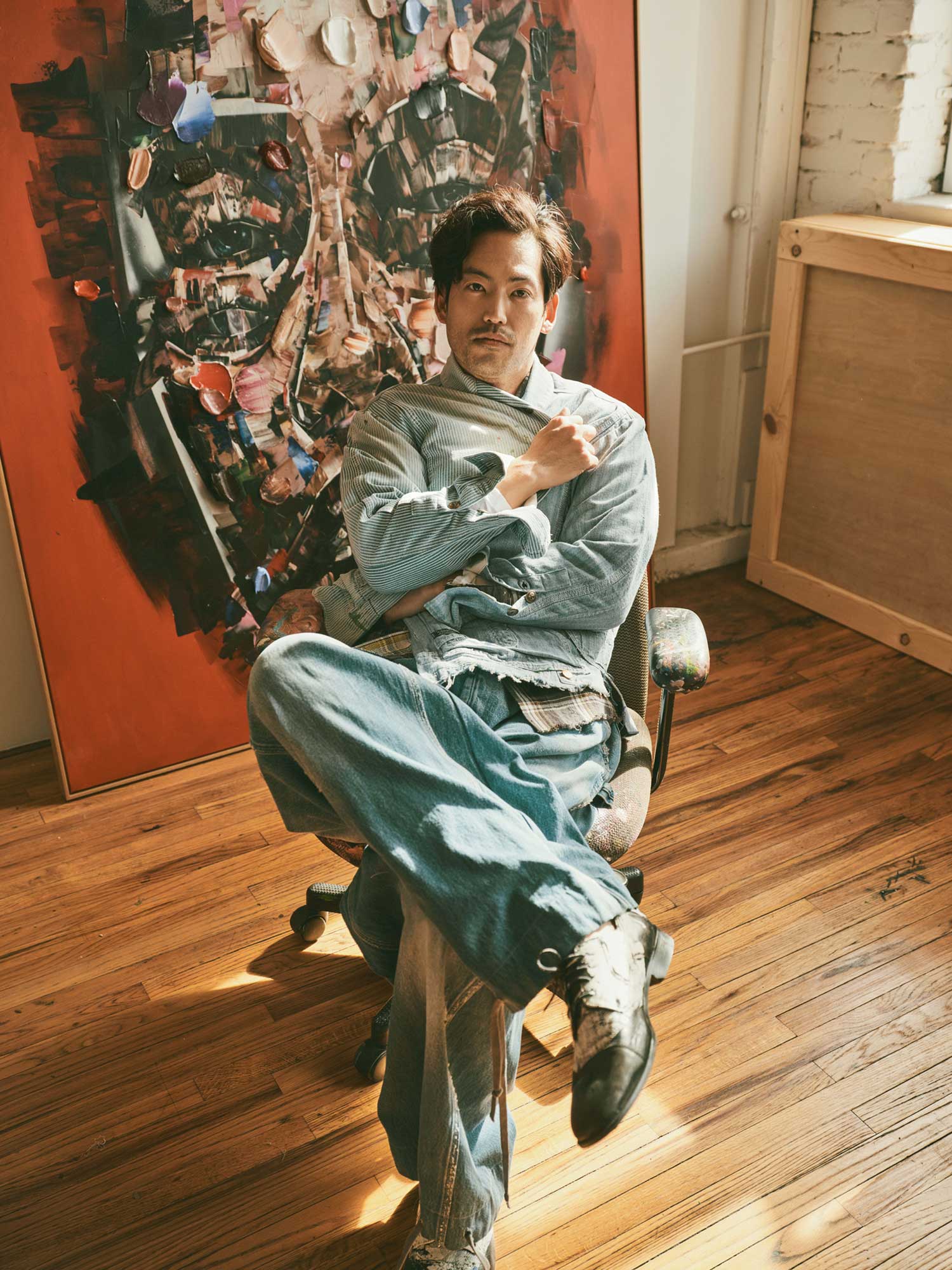
Alongside acting, Joseph is a painter, a self-taught artist whose star in that field is also on the rise. With exhibitions in Los Angeles, New York, Miami, Munich, Moscow, and Tokyo — and collaborations with brands such as Nike, Sony Music, Diesel, and Simon & Schuster — Joseph’s work is original, vibrant, and brimming with emotion, the fruits of self-examination in pursuit of balance and clarity. Inspired to paint following the death of his father, a man he seldom saw, Joseph began sketching his dad from photographs he’d inherited. It was a practice employed to help understand and process his grief, and also as a means of exploring the two sides of his identity as both a Korean and an American man. Hence, he describes how his signature portrait work “focusses on the parallel between external reality and the internal process by manipulating everyday faces and objects through segmented brush strokes, color choice, and volume — converging them into a complete and balanced whole.” His portraits are abstract, textured, arresting and indeed whole, as beneath the impasto smears on each portrait lies a fully completed face.
Joseph was born in Arizona but grew up in the rural West Lafayette, Indiana. He began acting on stage whilst studying political science at Purdue University in Indiana. His previous work includes roles in the award-winning 2018 film Searching, the KBS production The Miracle We Met, and playing Lieutenant Mura in 10 episodes of CBS’ Star Trek: Picard.
With such obvious talent and success in both mediums, the question naturally arises, how does he balance the two?
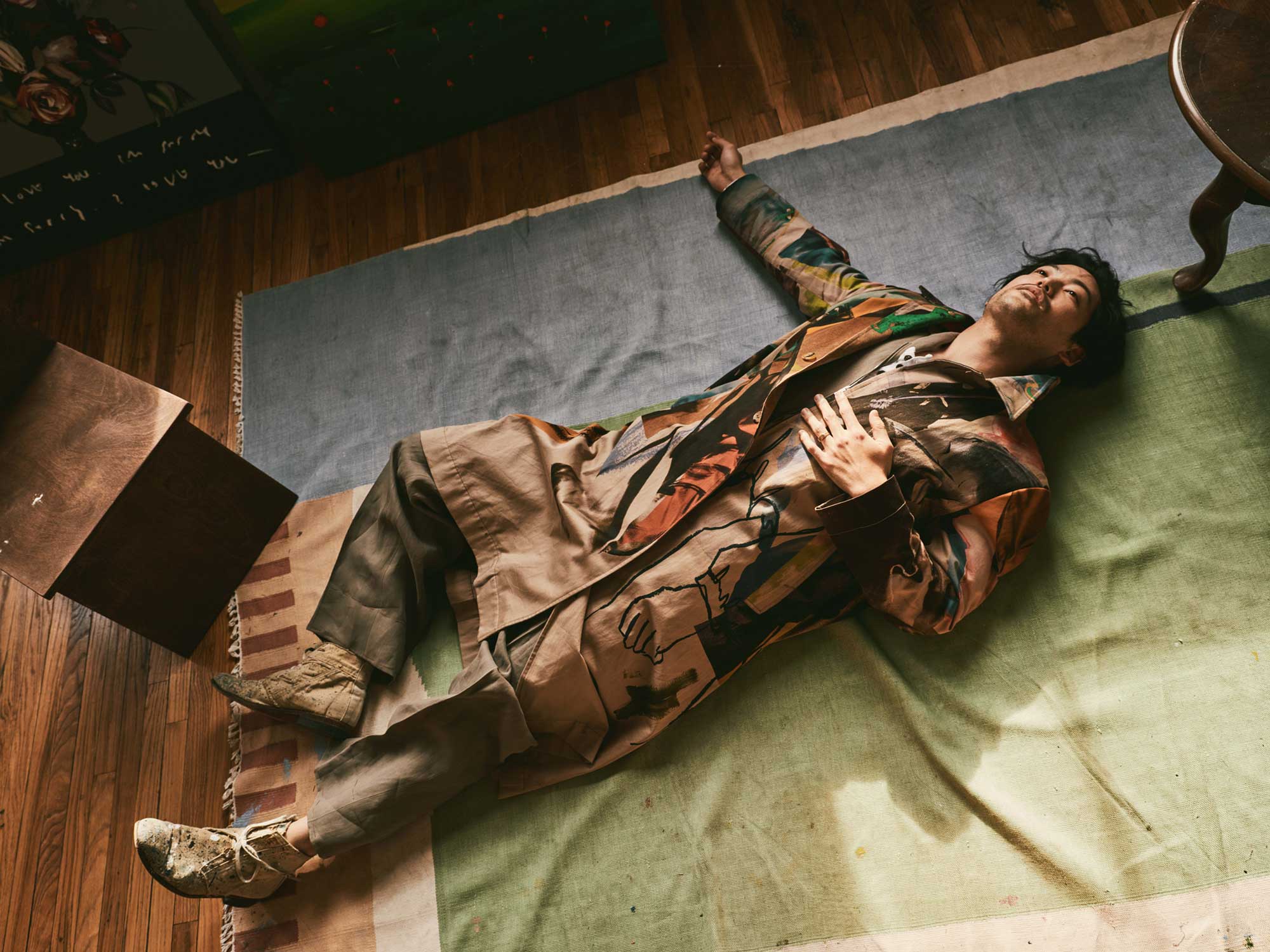
“I think both sides just service different sides of my personality,” he explains. “The thing that I really value in acting is that it’s a very collaborative effort. And so as soon as you’re on the set, you immediately feel a sense of humility in knowing that you’re just this small piece of the puzzle. And on the art side, it’s purely me being narcissistic and selfish with my own time and what I want to do. I really feel as a creative person, having humility and ego in balance is very important — and so it keeps me creatively whole.”
Mr Feelgood photographed Joseph at his downtown Los Angeles workspace, his art studio. I have to say, I’ve been fortunate enough to sit and interview a broad range of fascinating men, and Joseph is one of the most well-rounded, sage, smart, articulate, and emotionally intelligent that I’ve come across. He was candid, humble, soul-searching and bright as we discussed — amongst other things — anxiety, family, relationships, self-doubt, and fear. The full gamut of emotions every human must navigate. We hope you enjoy our conversation with Joseph, the latest subject of our Who the F*** Are You? profile, answering the 20 questions that get to the heart of who we are.
Who the f*** are you?
Who am I? I’m Joseph Lee. I’m a visual artist and an actor. And I’m still trying to figure that out, to be honest with you. I’m ever-evolving, I’m full of mistakes and always trying to learn from them, always trying to grow. I guess I’m a bit of a walking contradiction. I’m kind, but can be very stubborn and hard-headed. I tend to work alone, but really value collaboration. And I’m very confident, yet also very insecure. So I guess it’s just really a long-winded way of saying that I’m all these things just depending on the day.
How are you feeling right now?
I’m feeling present. I’m in my safe space, in my workspace. I always love having visitors around. We’re having a good chat. We just finished up a great shoot. I’m just having a good time, so there’s really nothing else to think beyond that.
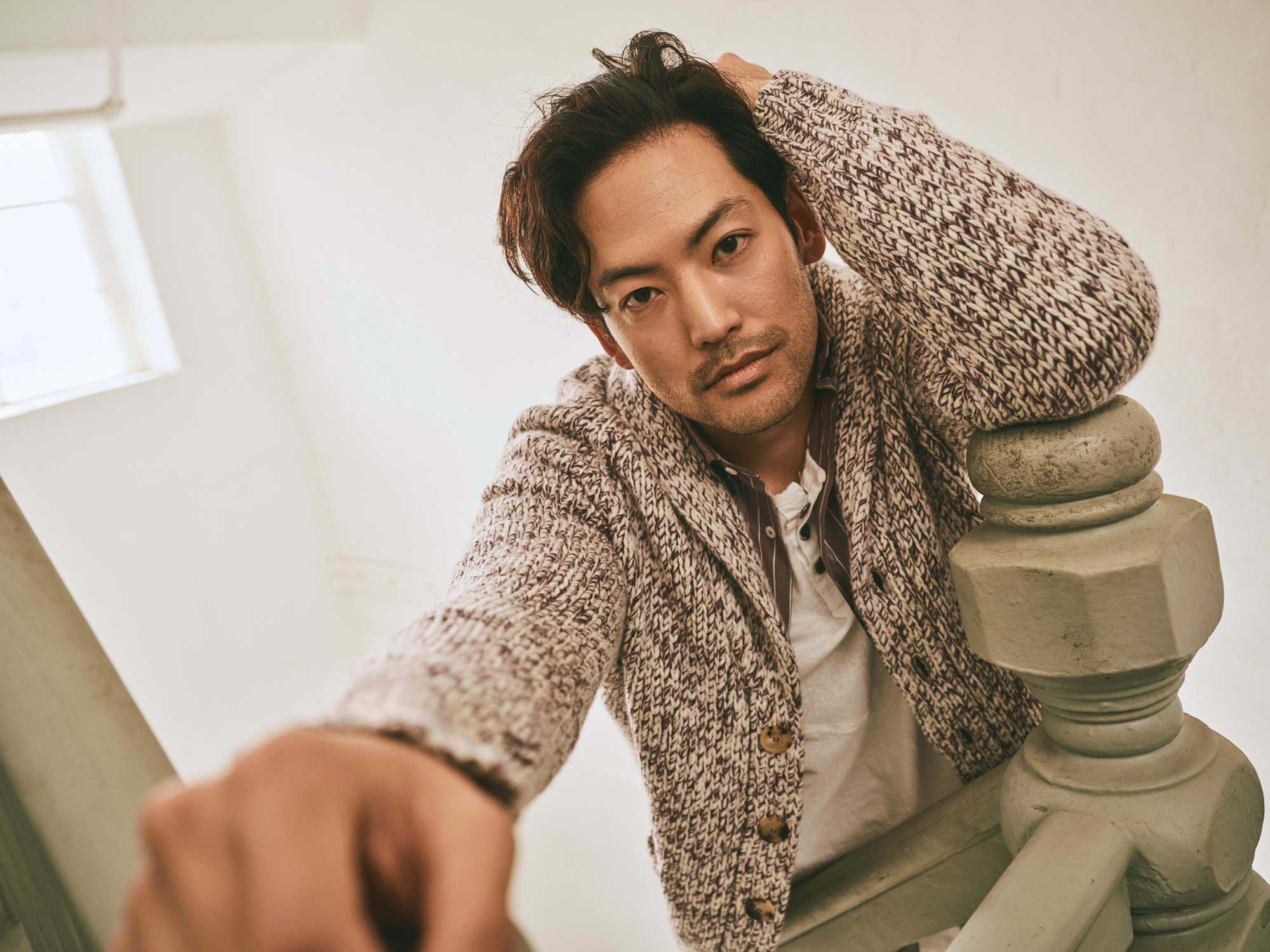
Where did you grow up and what was it like?
I moved around as a kid. I was born in Phoenix, Arizona. Spent a brief part of my childhood in Flushing, Queens. And I went through puberty in West Lafayette, Indiana, so that’s where I would consider home. My childhood there was very simple. I didn’t really have access to a lot of the things that I do today, but nonetheless, it was a place where I really enjoyed just grounding myself with sports. I played a lot of football, basketball, just spent a lot of time outside. And also, I was a bit of a latchkey kid. My mom was always working, so I spent a lot of time almost raising myself in front of a television. Spent a lot of time drawing, doodling, and really just lost in my own imagination, daydreaming.
I’m an only child. [West Lafayette] was an interesting place to grow up, a college town, so it was this great mixture of working-class families and academics. There was always this sense of valuing education and also this real kind of salt of the earth, hard-working mentality. My mom worked at the local factory on the assembly line for 15 years, and so I just always grew up with this hard work mentality.
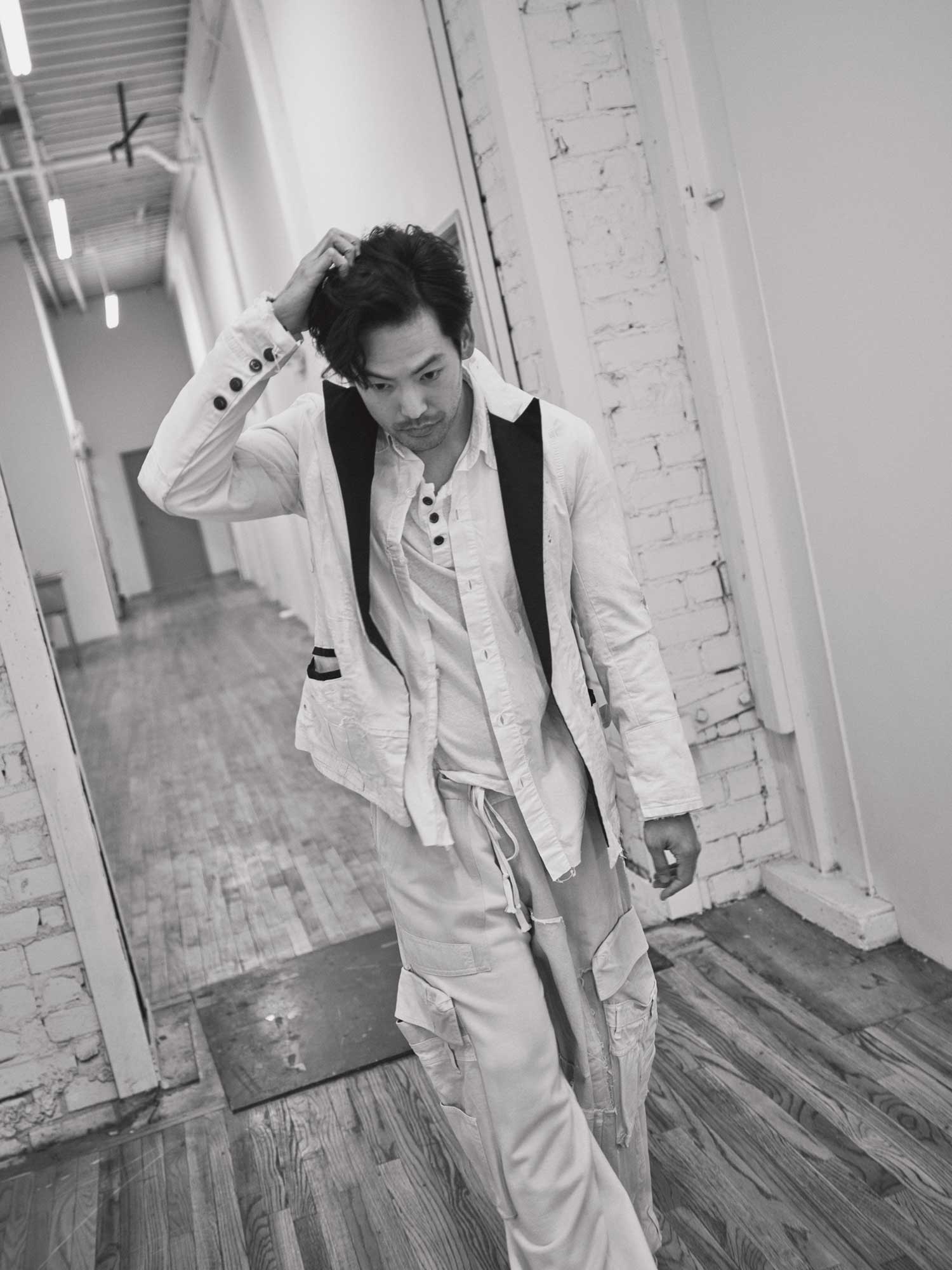
What excites you?
The smell of fresh paint. Seeing a blank white canvas. Eating junk food with my wife. And when Manchester United are having a good day. I mean, if they lose, I can’t even watch highlights. But then when they do have a good game, I will rewatch the highlights all week.
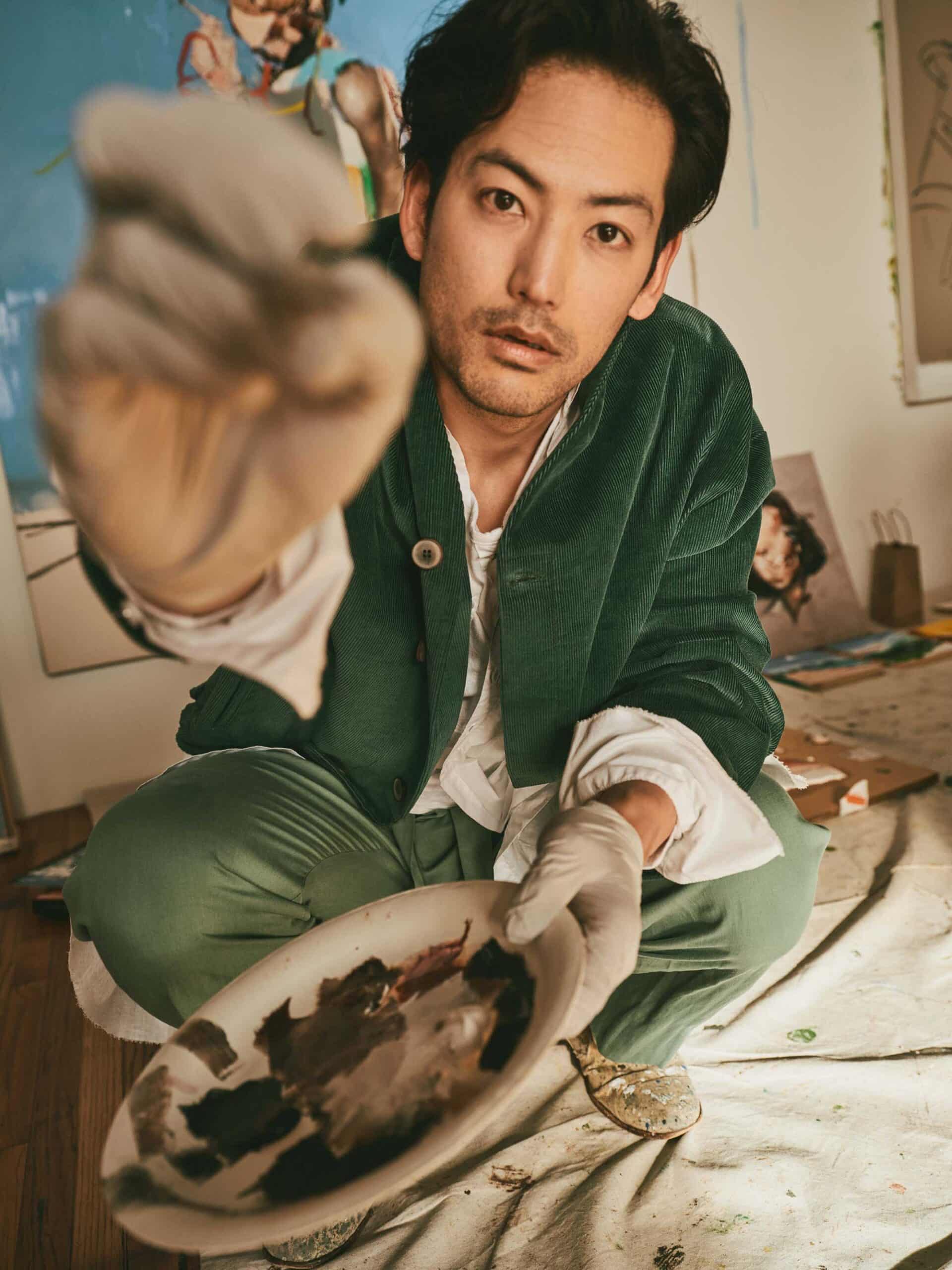
What scares you?
I’d say the voice of my anxieties, the voice of my insecurities, my shame, and just how loud that voice gets. It’s almost like it’s a shadow that just kind of lurks behind you and follows you around throughout the day, and you walk around with this impending doom of not knowing when that voice is going to creep up and start questioning everything about you and your self-worth. So yeah, I guess just me.
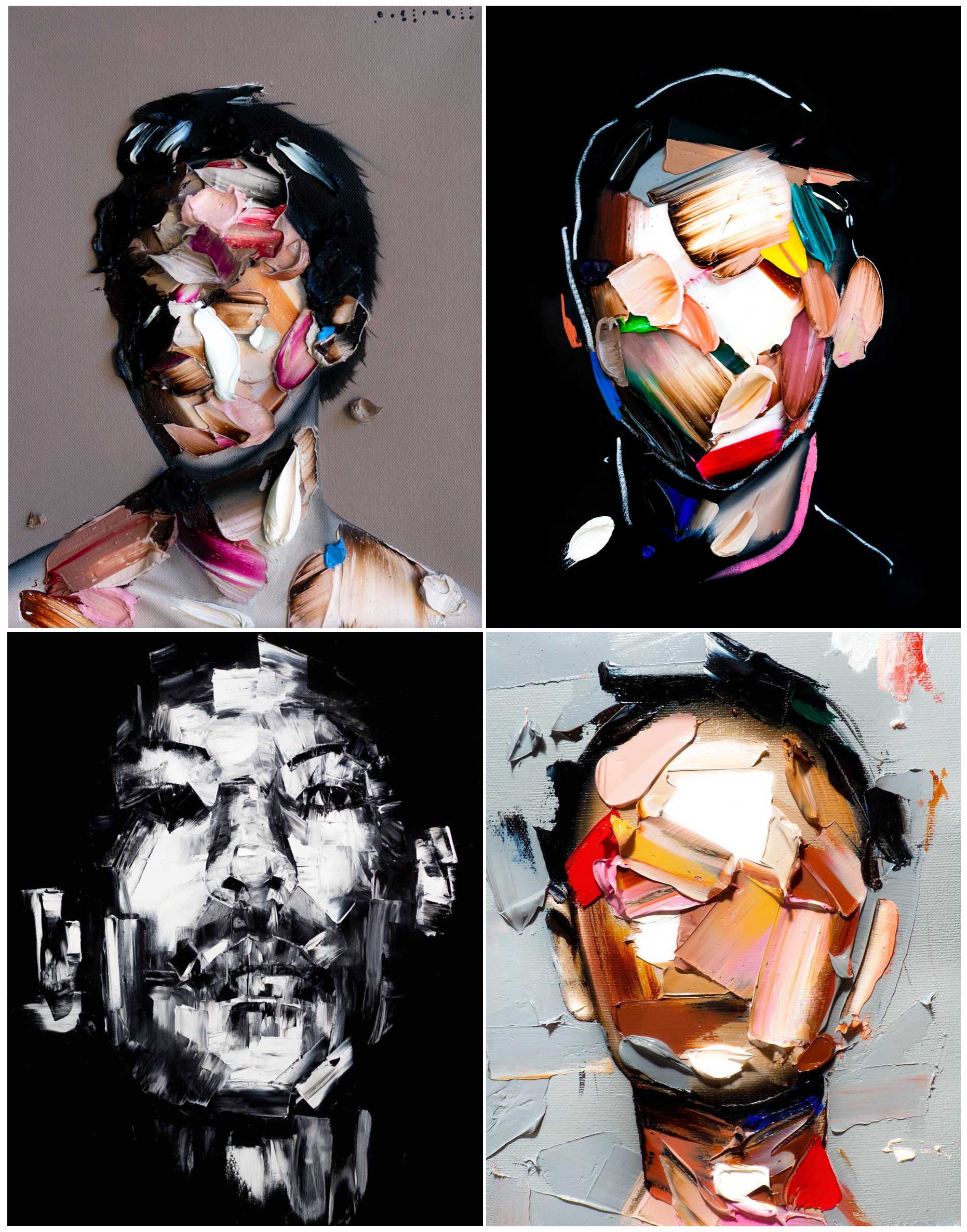
What is your proudest achievement?
My marriage. And it’s not to diminish my career accomplishments, but in many ways, I’ve been able to visualize and fantasize about the career that I have ever since I was eight years old. In some ways, I’ve been able to manifest it. But in terms of having a productive, healthy relationship, those are just things that I didn’t really have examples of growing up. And so when I met my wife and I decided to dedicate myself to this partnership, it was like the full breadth of life had just opened up. I’m Capricorn and so much of my self-worth is tied to my work ethic and work. I think, for the longest time, I think I just had it backwards.
The idea of working hard is fairly easy for me. The idea of putting all of your attention and focus onto one singular thing, whether that’s your craft, passion, job, career, whatever you call it, that’s actually easy. I think as I get older, I find the more challenging thing is to be able to maintain that passion while also giving yourself the same, if not more attention and focus to your family, your marriage, friendships, your own health. And so that’s what I’m prioritizing. And it feels very natural, it doesn’t feel forced. I just feel, as I get older, I don’t know if it’s a maturation thing, but I just feel like those priorities are aligning themselves. And so that’s what I’m most proud of.
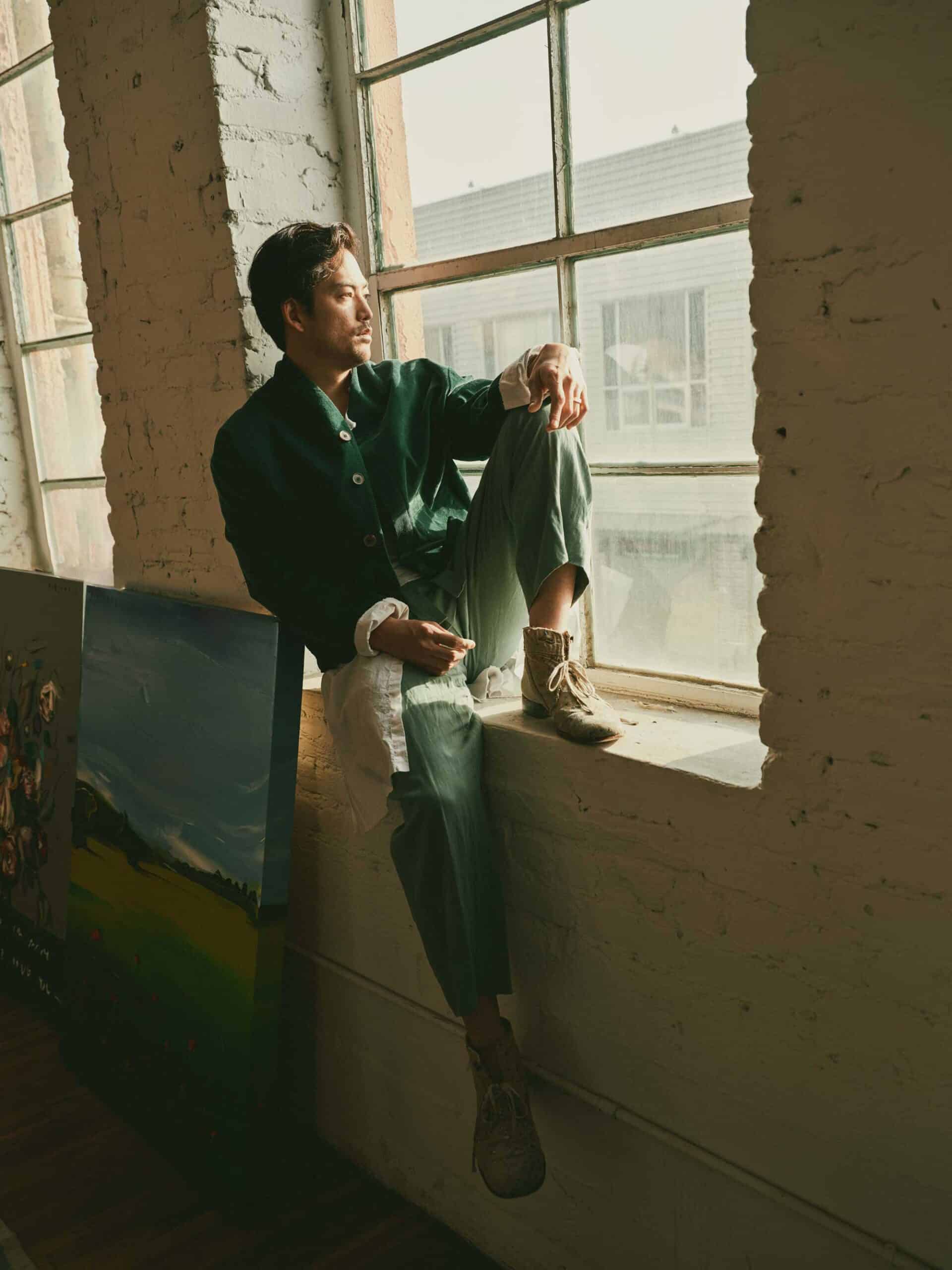
What is the hardest thing you’ve ever done?
I can’t put my finger on just one thing. I think it’s more of like a pattern of events. But I think it’s simply just asking for help. And that ranges from the most minuscule things to larger things. I think it comes from a lot of different factors.
For one, I’m an only child, and so I am very self-reliant and very independent. Coming from a single parent mom, I think the role of being a protector and a provider, those are hats that I’ve worn ever since I was a kid. And then there’s a cultural component to it as well, whereas I think asking for help comes with a lot of shame in my culture. It’s a foreign language at times, really. And so for all those reasons, it’s just kind of built this wall that’s tough for me to chip away at at times.
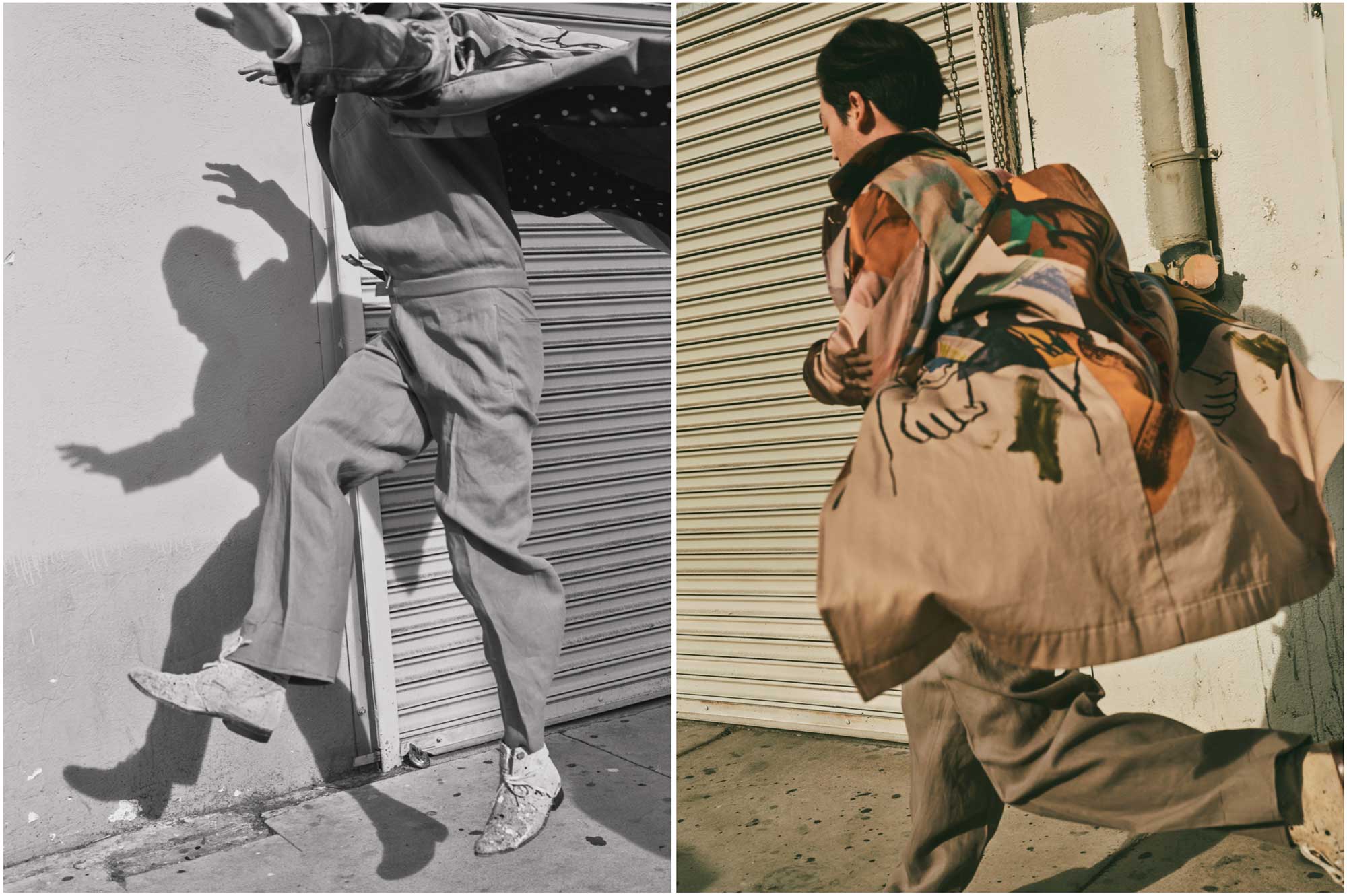
Who was your greatest mentor and what did they teach you?
I don’t think I have one, but that’s only because of my inability to ask for help. I have made it a point in life to always ask for advice from people that I respect. Somebody that comes to mind… I had a political science professor back in school, and he would always address the class by telling everybody to build a mental martial art. I think he meant it more so within the context of political discourse, but I kind of took it beyond the classroom and just applied it to all facets. Essentially, it’s this idea of protecting yourself from the bullshit and also feeling the liberty to be able to question things and not always taking everything at face value. So having that healthy skepticism.
And then my old boss at the restaurant that I used to wait tables at, his name is Sam Koo. I had a shift one day, and I had a couple of tables that were giving me a tough time.He took me aside and he said, “Hey, let’s go for a smoke break.” So we’re outside, and I remember he just looked at me and said, in Korean, “You’re not in college anymore.” And there was a lot of subtext to that. The way I took it was, up to this point in your life, you’ve grown up within these structures and rules and you’re now at a place in your life where you’re going to encounter people that don’t necessarily abide by those rules, and you’re going to have to learn how to deal with it and navigate through that. And so it was just this very simple, masculine, yet loving way of telling me to grow up, and I needed to hear that. I remember that a lot.
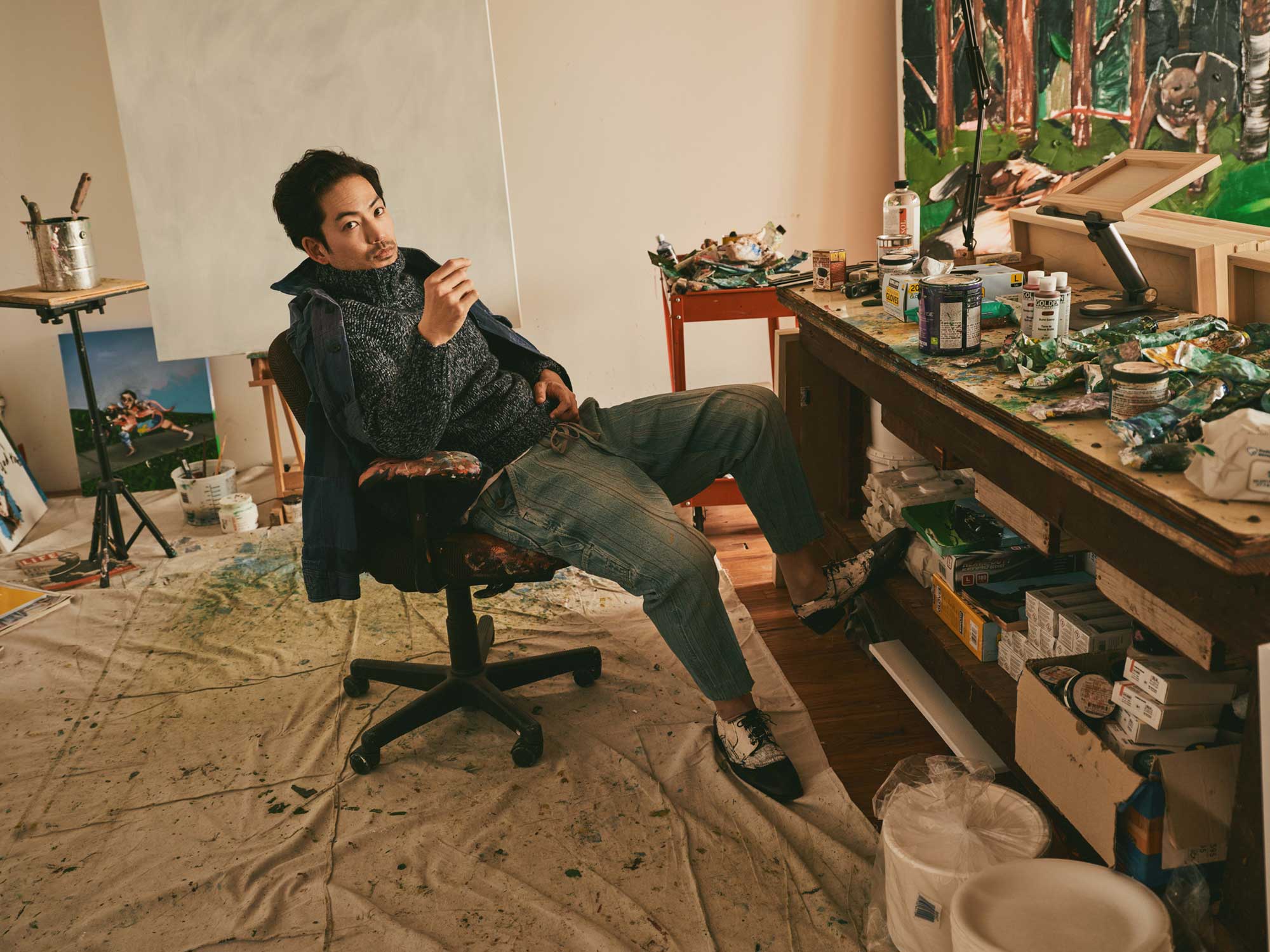
Who are your fictional and real-life heroes?
My real-life hero is my mom. She’s just the most creative person that I know, and it’s not within the realm of art, but she was just somebody that always loved working with her hands with limited resources. She’s a very scrappy individual, and she always struggled, yet always carried herself with class, with grace, with love, faith, and grit. And I think those are things that I’ve always tried to model myself after.
I would have to also say my wife. My wife is somebody who has also gone through a lot in life, but chooses to always have a positive outlook. And most importantly, she emphasizes empathy. For me, that’s really inspiring because it doesn’t allow me to swim in this pool of sorrow and resentment.
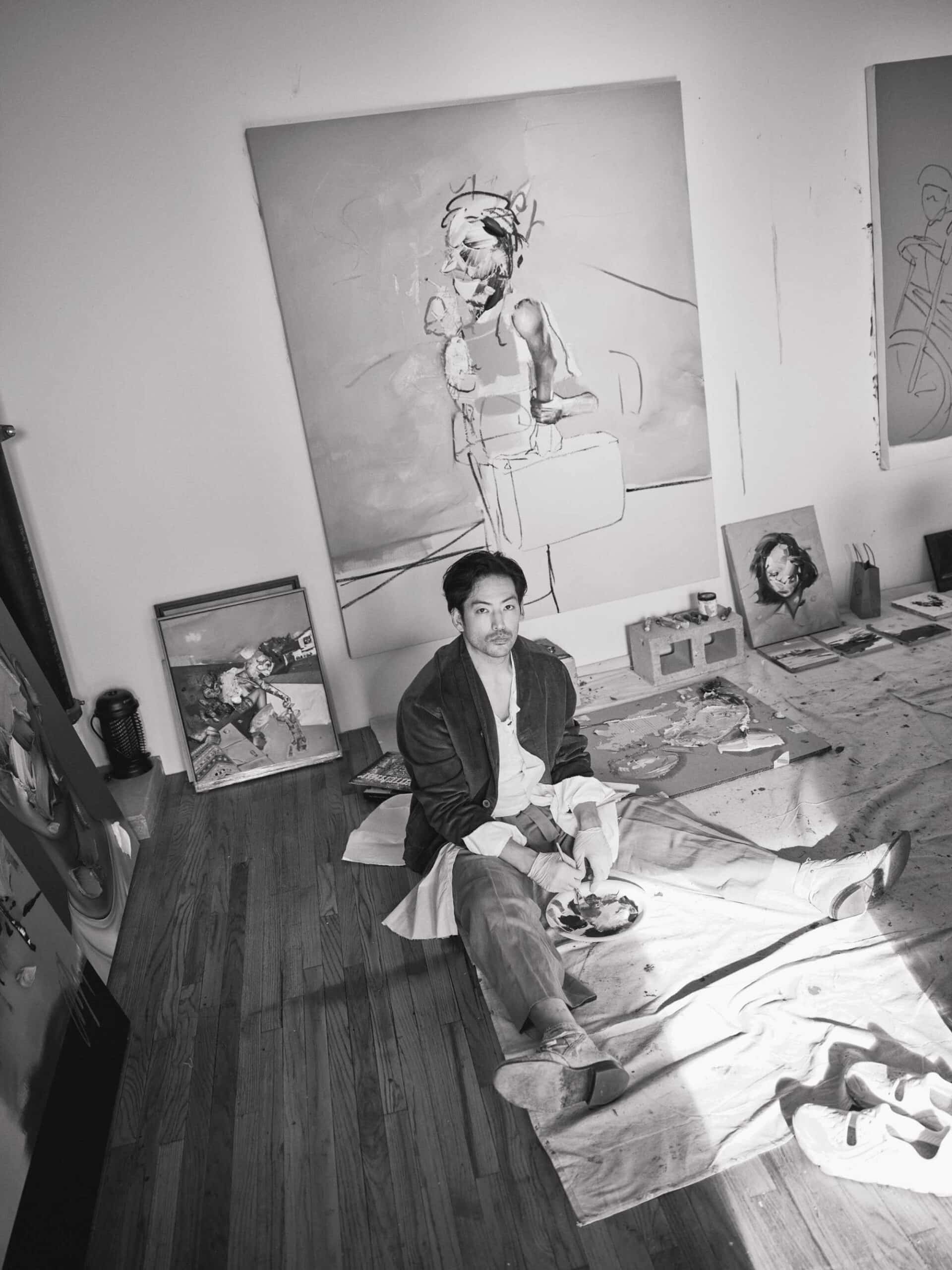
Fictional characters? John McClane from Die Hard. I picked up my nasty smoking habit from that guy. A guy saving the world with no shoes on, I mean, just the coolest guy in the world. All three of James Dean’s characters: Jim Stark in Rebel Without a Cause, Cal Trask in East of Eden, Jett Rink in Giant. And having somebody that grew up an hour from you who’s this iconic figure, for me, was just knowing that, “Wow, somebody from this area actually did that.” I did a paper on him [James Dean] in the ninth grade at high school, and it was the first time I watched one of his movies. I was just mesmerized.
Bruce Lee, everything from Fist of Fury to Chinese Connection. I mean, watching a guy that looked like me beating up colonizers on film, that was like my Marvel superhero. And then aesthetically, I would have to say Jef Costello in Le Samouraï. All these guys just kind of shaped my idea of somebody cool, masculine and vulnerable at the same time — and that’s what just really always resonated with me.
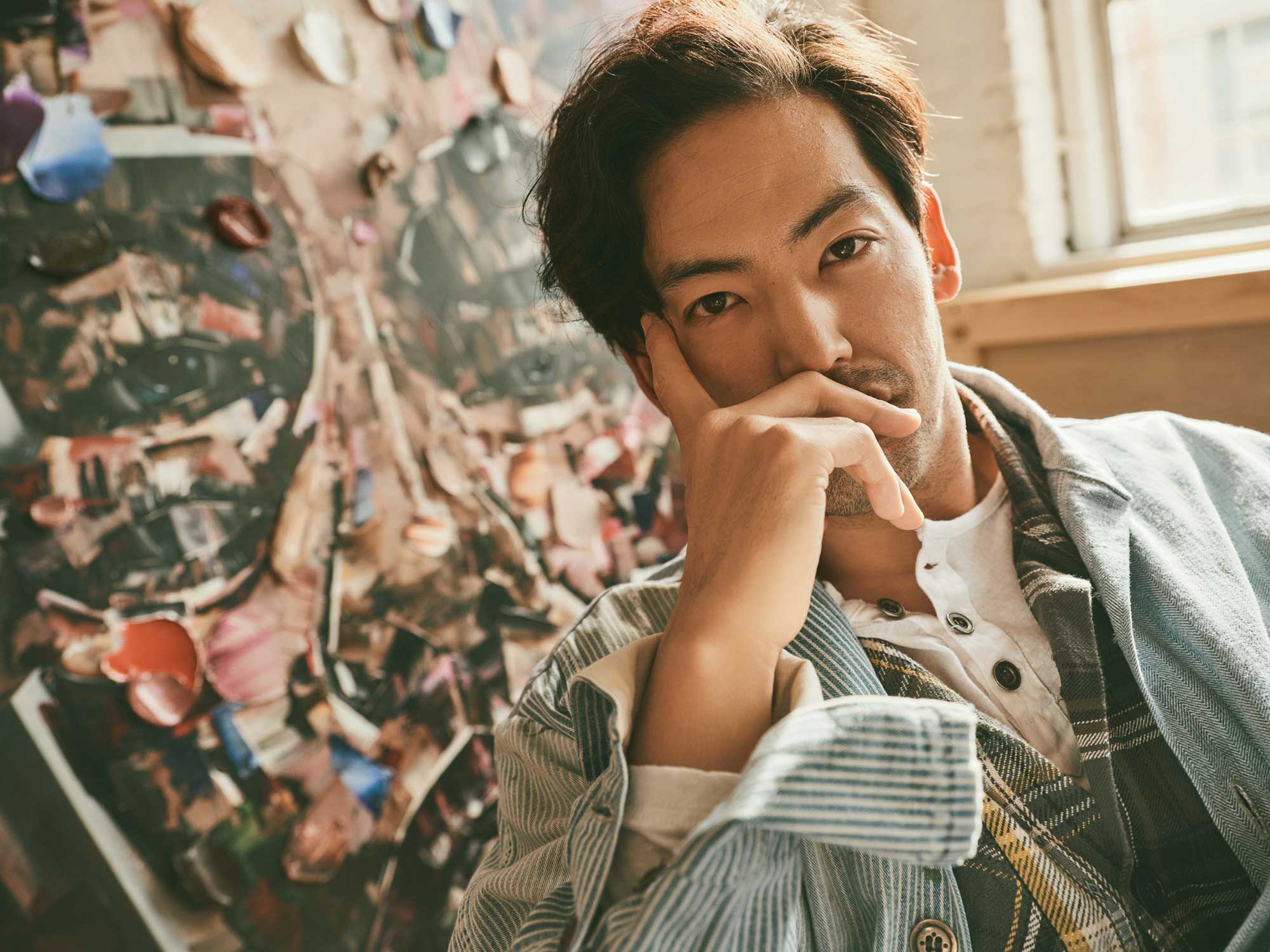
What is your favorite item of clothing in your wardrobe?
I recently made my first big boy accessory purchase, and that’s my Lemaire croissant bag. It travels everywhere with me. I love that bag. And on top of that, my wife and I get to share it, and so it’s worth every penny, really.
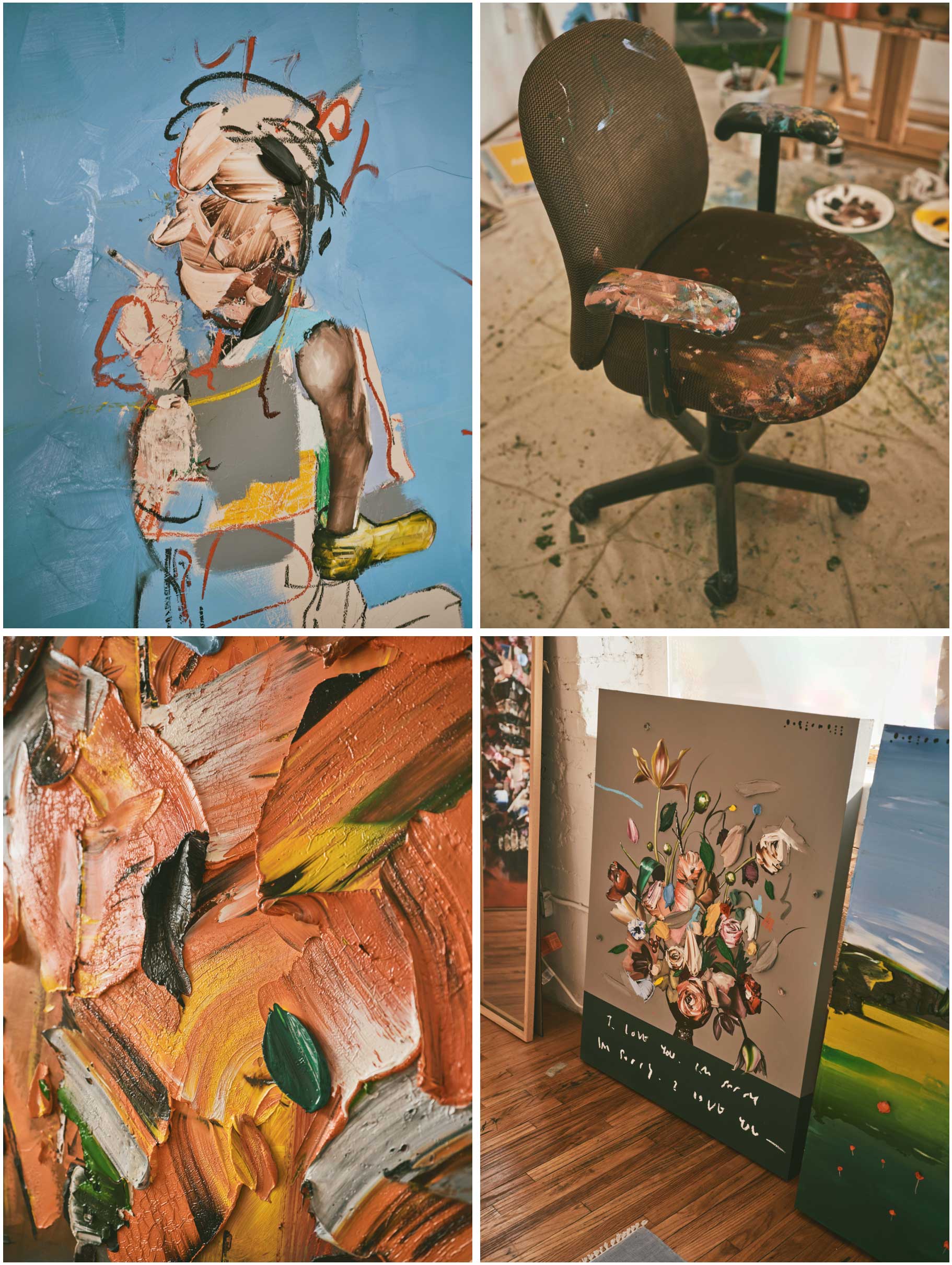
What music did you listen to age 13, and do you still love it now?
I didn’t really start listening to music until I was a little bit older. Malcolm Gladwell always talks about this study in psychology where the music you listen to from the ages of 18 and 19, that will become the soundtrack of your life. And for me, it was like this incredible renaissance of Midwest hip-hop that was happening, and that was Kanye West, Lupe Fiasco, Common, Kid Cudi from Ohio. Hip hop prior to that just scared the shit out of me, which is why I loved it. But these guys really just introduced a different creative take on the genre, and those guys will forever be a part of my soundtrack.
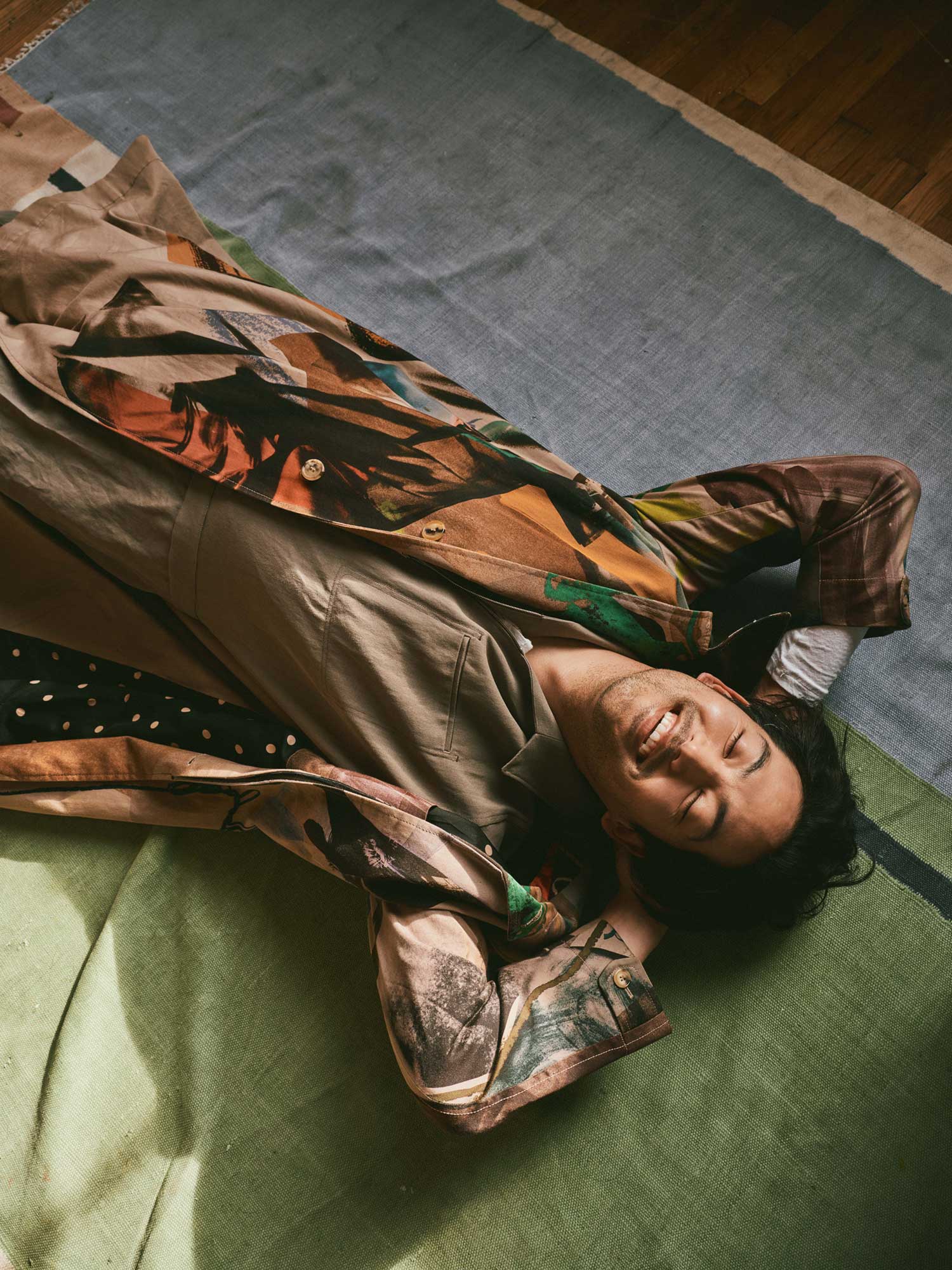
What is the most inspiring book you have ever read?
I don’t have any inspiring books, but that’s only because I read mostly history books. Two books that stick out would be the first time I read The Autobiography of Malcolm X: As Told to Alex Haley. It’s this incredible portrait of perseverance, self-growth, and ultimately, conviction. The other book I would have to say is Overthrow by Stephen Kinzer, and it’s this incredible overview of a century’s worth of US foreign policy and all of its current day ramifications because of those events. It’s just this eye-opening account of world history that is so different from what’s ingrained in you through public schooling. And those two books really changed the way that I view society.
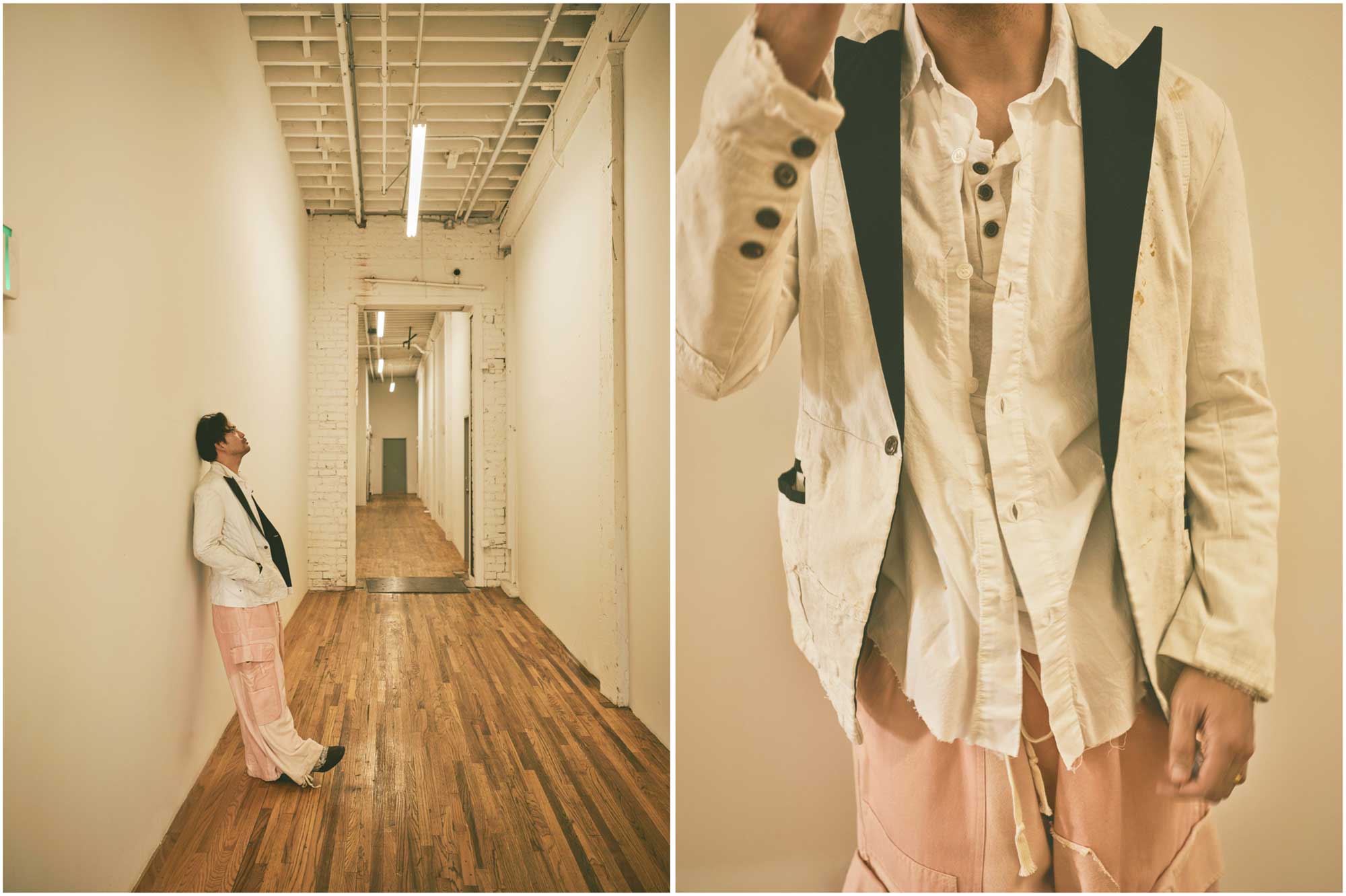
What is a movie that left a lasting impression on you?
I could go all day, but I’ll just shoot some off the top of my head. Ace Ventura 2: When Nature Calls. Jim Carrey is just my favorite actor of all time. He’s the best. Goodfellas and Casino, that’s pretty much a tie for me. In my opinion, those are two of the most perfectly-constructed films. Thirst by Park Chan-wook, but that could really just be any Park Chan-wook film. He’s by far my favorite filmmaker of all time. And recently, I’d have to include Zone of Interest by Jonathan Glazer. It’s kind of strange calling a Holocaust film one of your favorite movies, but I was floored throughout the entire film. And to be honest, I’m still processing the film, but just to watch something that’s so boldly executed where you really kind of throw out all the rules of narrative filmmaking, it was an experience for me. And that’s rare, so I’d have to include that in my list.
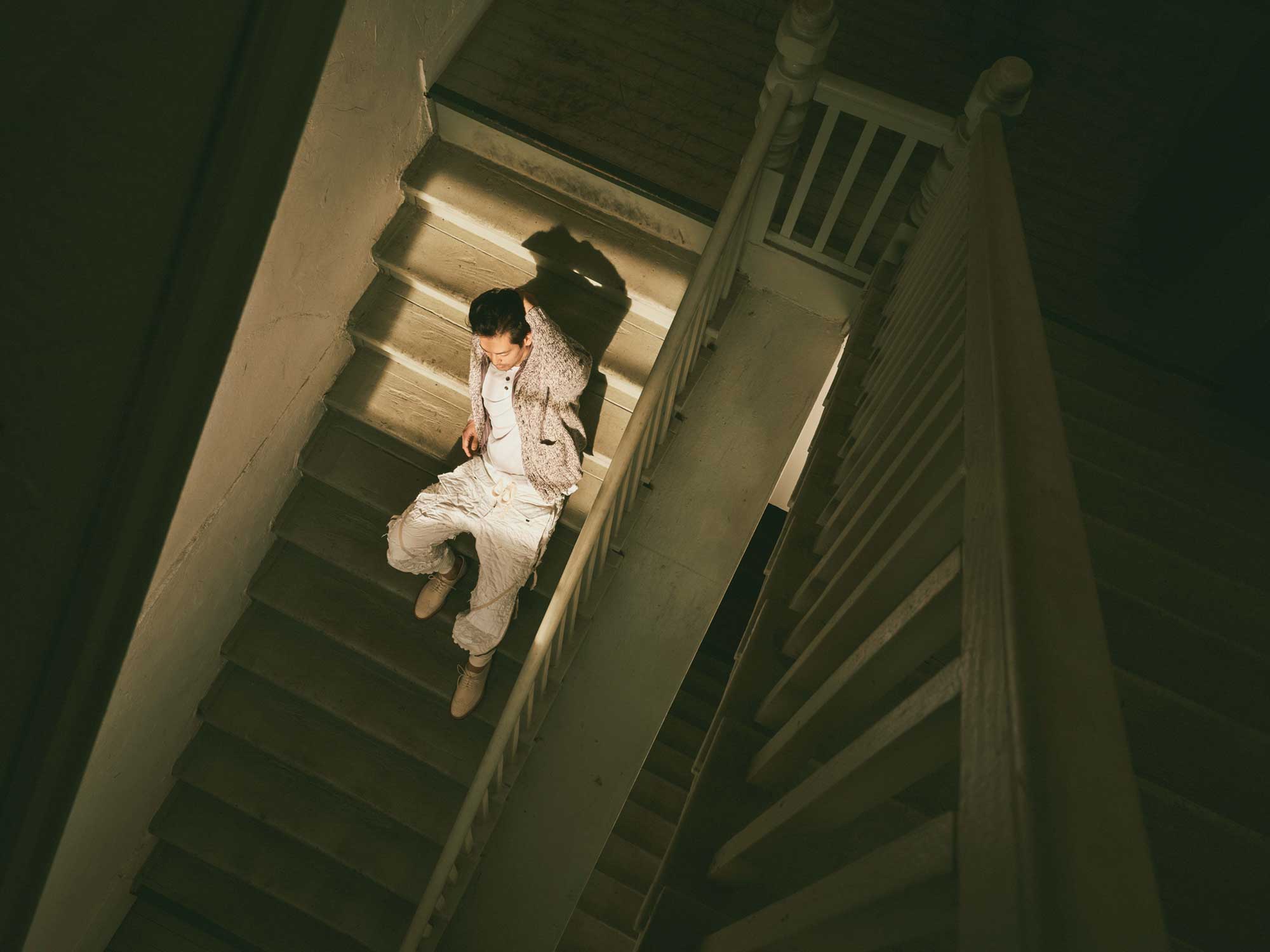
What is your favorite word or saying?
My wife and I, anytime we’re in an argument, we tell each other, “The answer’s always in the middle,” and it’s kind of like our go-to safety quote where it’s like, “All right, neither one of us are right. The answer’s somewhere in the middle.” And that usually kills the fight.
And, “Be loyal to the nightmare of my choice.” It’s a quote from Joseph Conrad in Heart of Darkness, and it’s one of those quotes that I’ll say to myself anytime I’m feeling in a negative space, and that just kind of comforts me. It reminds me that sometimes you have to stick by the decisions that you choose to make and know that the outcome will work out.
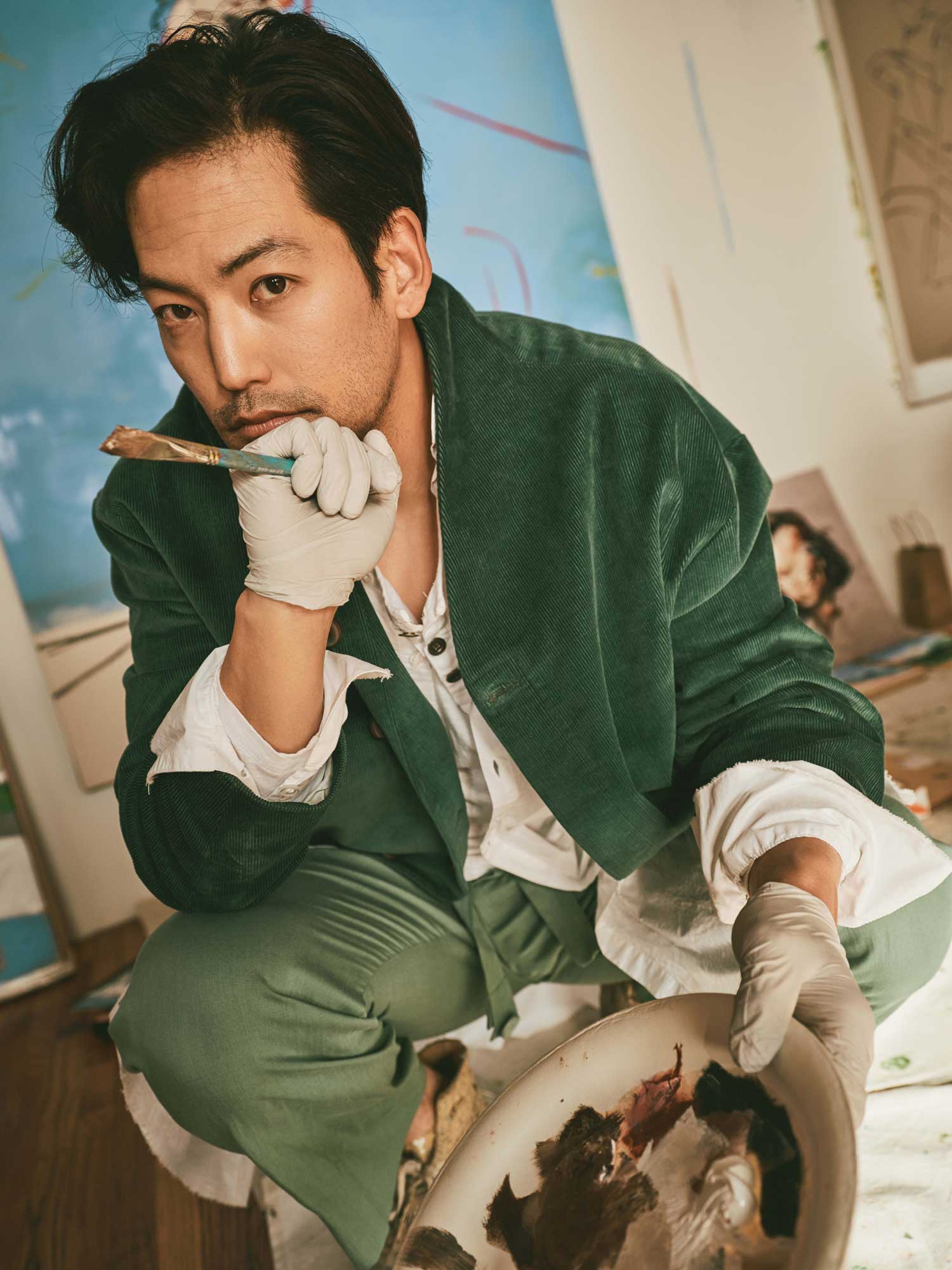
What would you like people to say about you at your funeral?
I think I have a weird relationship with death. Who doesn’t? We were kind of talking about this earlier where I lost my father about 10 years ago, and in recent time, I’ve been trying to remember his voice and I can’t do it. His voice, it’s just kind of dissipated from my memory bank. I have recordings, but they were of him when I was a baby. Naturally with age, your voice tends to change a little bit. And so it’s kind of like this reminder that life is fleeting. It’s not to be gloomy about it, it’s actually quite the opposite — where if you’re fortunate enough to be on this Earth, you really just have to live life to the fullest. So I think that’s how I would want people to come to my funeral. I would hope that it’s a celebratory experience in that they could just look at this guy and say, “Hey, he did everything he wanted to do, and regardless of how successful, he went out on his own terms.”
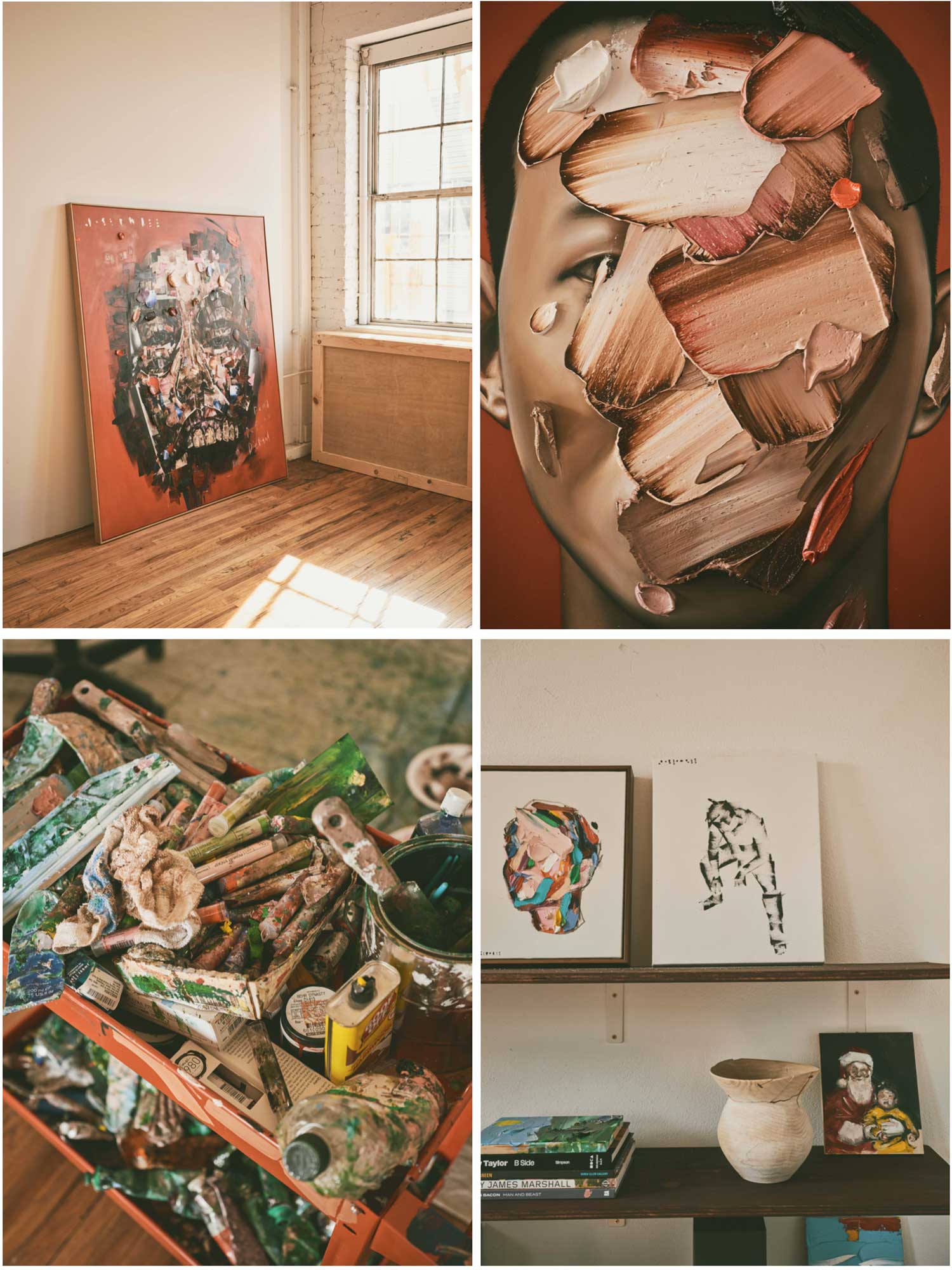
And finally, a quick fire five favorites..
Car?
I’m not a big car guy, but I’d have to say a 1955 Porsche Spyder 550. And the only reason I know that is because it was the car that James Dean died in, and there’s that iconic photo of him, I believe it’s his last photo where he was pumping gas. It’s just this metallic bullet of a car and yeah, that’s always something that’s very sexy to me.
Sports team?
I got a few. ’93 era Phoenix Suns, it was the team that made it to the finals and lost. ’90s era Bulls. ‘2006/07 season, Indianapolis Colts that won the Superbowl. And then ’08, Man United, the Champions League team in Moscow. That team was just incredible. Patrice Evra, Ronaldo, Rooney in his prime; elder statesman, Scholes, Giggs, yet still in their prime.
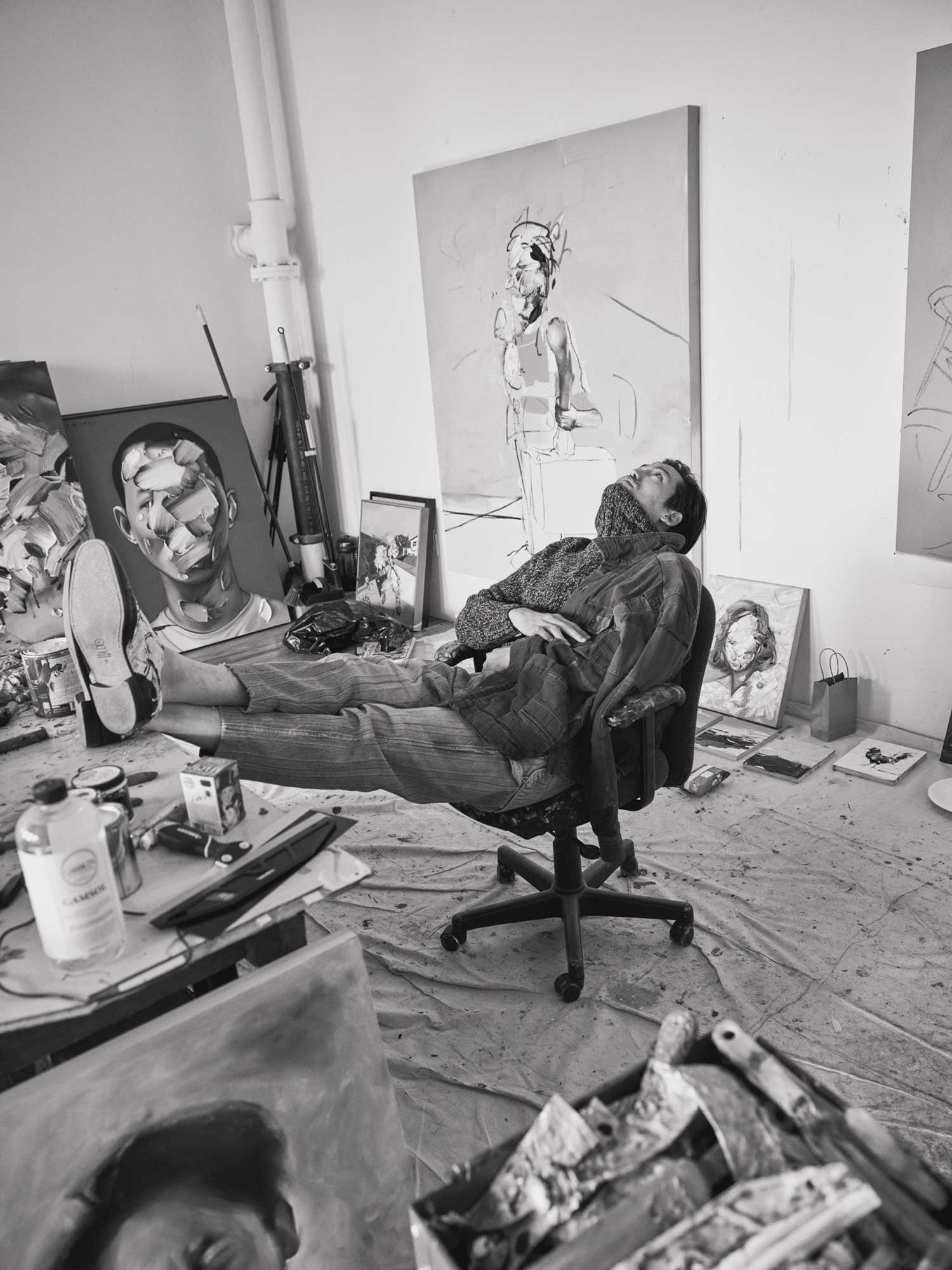
Meal?
A good Smashburger. It’s a very simple thing, but it always sits well with me. We had a photoshoot today, so I disciplined myself for the week, but as soon as we’re wrapped up…
Grooming products?
I use a lot of Korean products. I’d have to say Sulwhasoo, I use a lot of their moisturizers and toners.
Clothing label.
Zegna. I love Zegna. I’m a big fan of Lemaire as well.
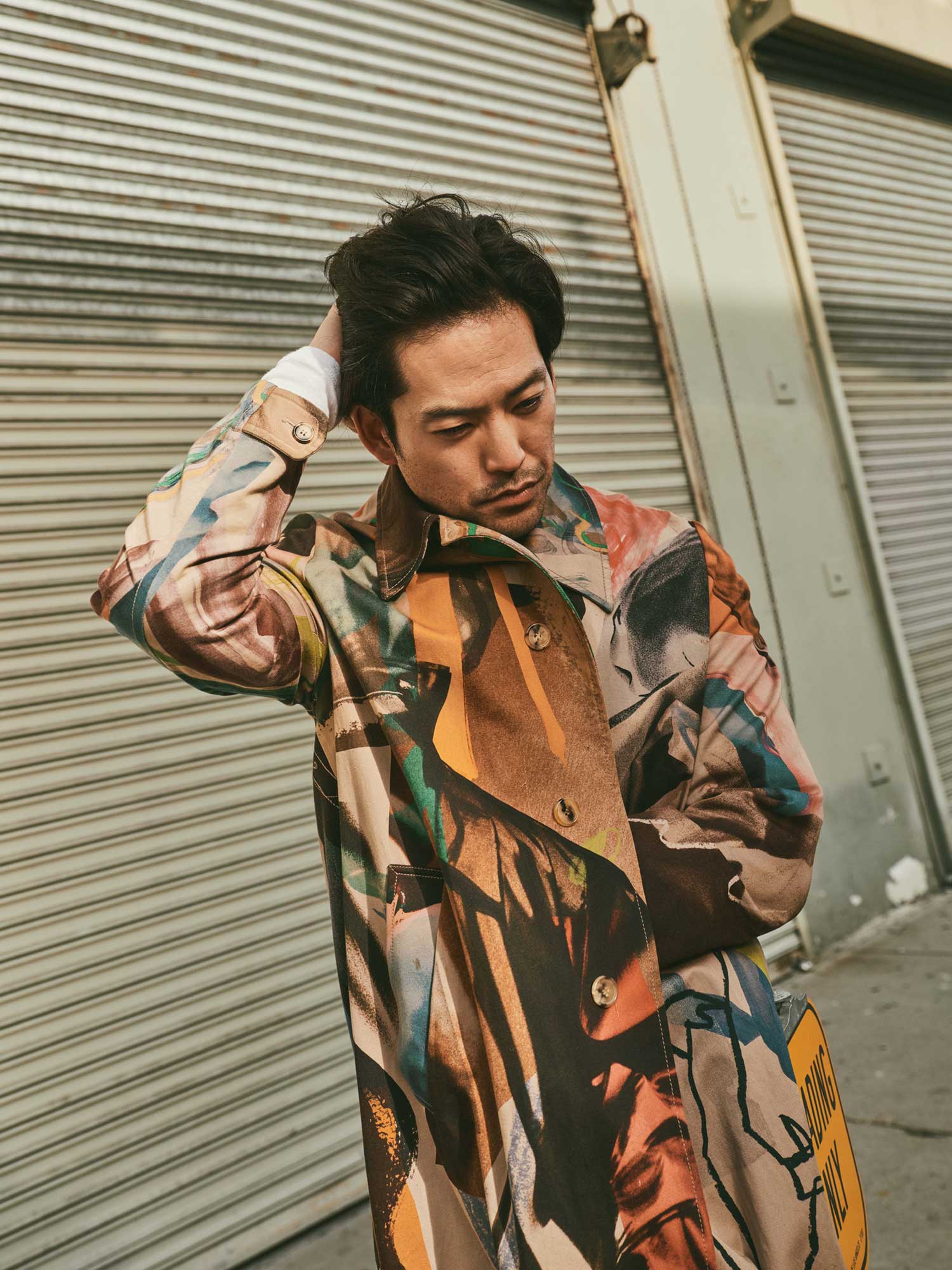
For more of Joseph’s work, visit his site and Instagram.
Grooming by Ayae Yamamoto for Exclusive Artists using Shiseido and R+Co
Thanks to Slate PR, Anonymous Content, Jeanne Yang
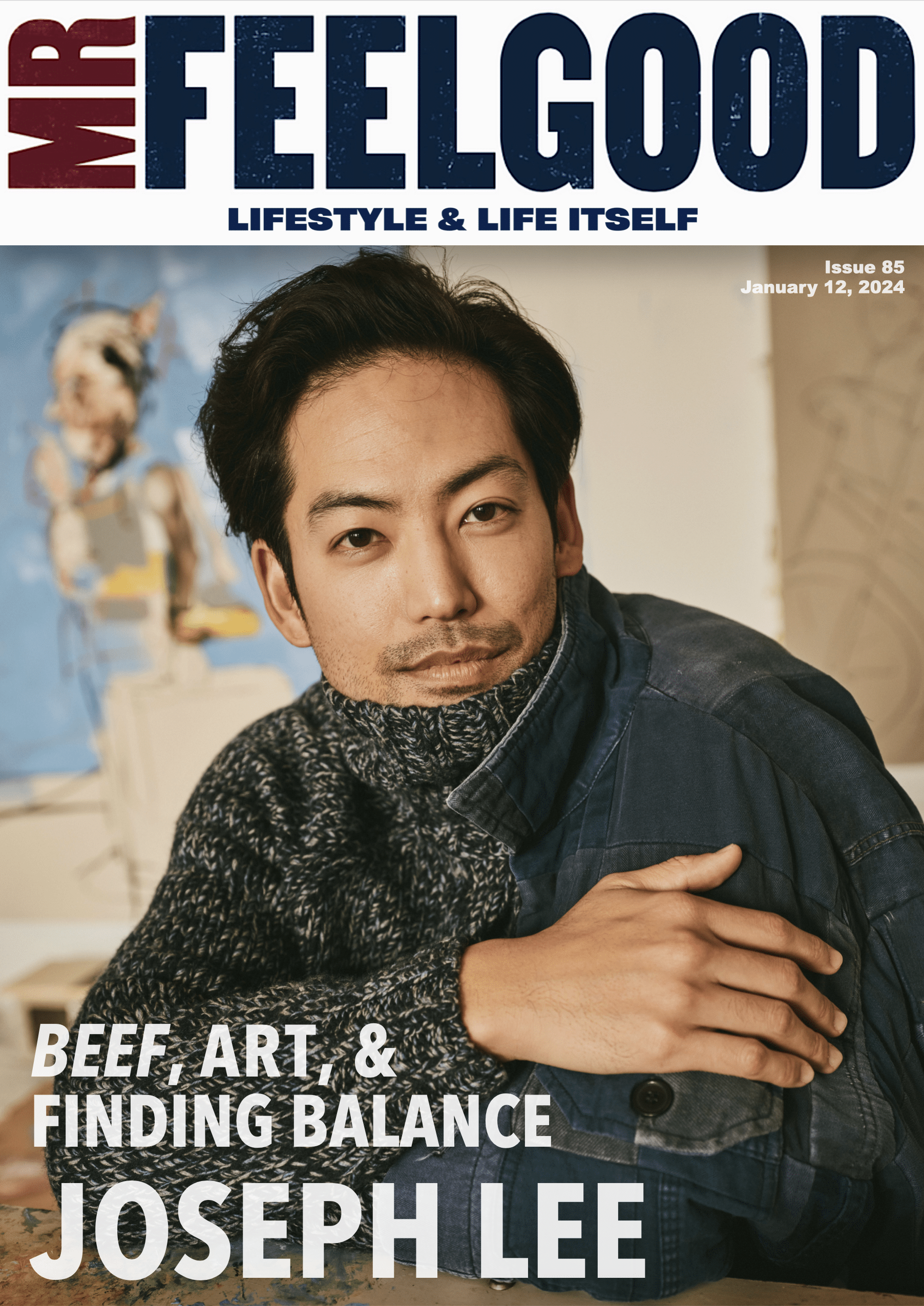


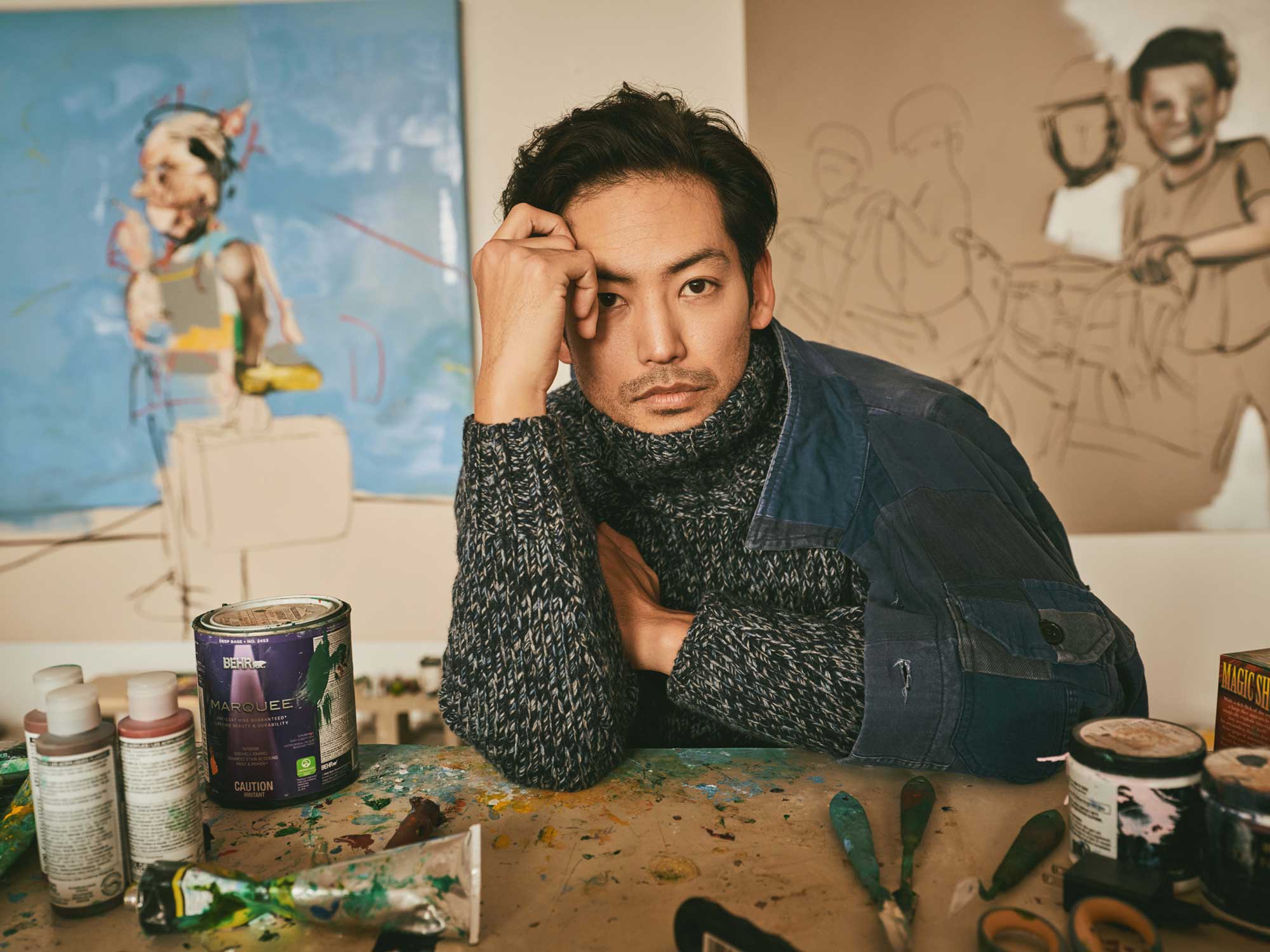


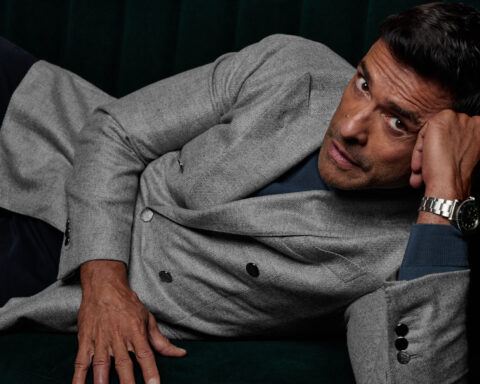




Another amazing post keep it up. ❤️
What a fascinating perspective! Joseph Lee’s journey of blending beef, art, and personal balance is truly inspiring. It’s amazing how he manages to intertwine these seemingly different passions into a cohesive lifestyle. I love the emphasis on creativity and finding one’s own path. Can’t wait to see how he continues to evolve in both art and culinary worlds!
What an inspiring read! I love how Joseph Lee blends his passion for beef with his artistic pursuits. It’s a great reminder of finding balance in our lives by embracing diverse interests. Can’t wait to see how his journey unfolds!
What an inspiring read! I love how Joseph Lee intertwines his passion for beef and art while emphasizing the importance of balance in life. It’s a refreshing perspective that encourages us all to chase our passions while finding harmony. Thanks for sharing this amazing journey!
What a captivating read! Joseph Lee’s journey of intertwining his passions for beef and art is truly inspiring. It’s amazing to see how he finds balance in such diverse interests. I love the insights on creativity and culinary arts. Looking forward to seeing more of his work!
What an inspiring read! I love how Joseph Lee blends his passions for beef and art while striving for balance in life. It’s a great reminder to explore creativity in whatever we do and to find joy in the process. Looking forward to more stories like this!
What an inspiring read! I love how Joseph Lee intertwines his passion for food and art while seeking balance in life. It’s a great reminder of the importance of creativity in all aspects of our lives. Can’t wait to try out some of his ideas!
What an inspiring post! Joseph Lee’s journey beautifully blends passion with purpose. It’s fascinating to see how he balances his love for beef and art, showcasing that creativity can thrive in unexpected places. Thanks for sharing his story!
What an inspiring journey, Joseph! Your ability to blend your passion for beef and art while maintaining balance truly resonates. It’s a great reminder of how we can integrate multiple interests into our lives. Looking forward to seeing more of your work!
What a fascinating read! I love how Joseph Lee intertwines his passion for beef with his artistic endeavors. It’s inspiring to see someone find such a unique balance between their personal interests and professional life. Looking forward to more insights like this!
I adored this post! Joseph Lee’s journey of blending his passion for beef and art is truly inspiring. It’s fascinating to see how he finds balance in such contrasting worlds. The details about his creative process really resonated with me. Can’t wait to try out some of his recipes!
Joseph Lee’s passion for both beef and art is truly inspiring! It’s fascinating to see how he balances the culinary and creative worlds. His unique approach to merging these two passions reveals a lot about finding harmony in our endeavors. Can’t wait to see what he comes up with next!
I really enjoyed reading through this article because it provides clear information and a refreshing perspective. Your writing style is engaging and easy to follow, which makes the entire experience enjoyable. Thank you for sharing such helpful and inspiring content with the community.
official site https://homeless.id/